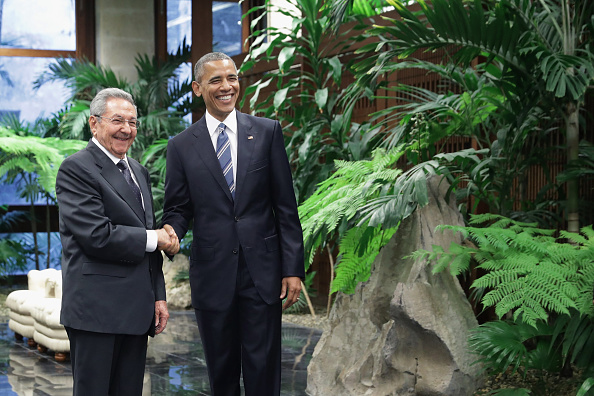
During a brief joint press conference between President Barack Obama and President Raul Castro, CNN correspondent Jim Acosta asked the Cuban leader why his regime held political prisoners.
In response, the Cuban leader denied holding prisoners and asked Acosta, whose father immigrated to the U.S. from Cuba in the 1960s, to provide him with a list. If he could, Castro said dismissively, he would release them today.
“What political prisoners? Give me a name or names,” Castro said.
Soon after the statements, several reporters took to social media to share lists several international and Cuban human rights groups have already published naming the political prisoners that remain in detention.
On March 19, the Victims of Communism Memorial Foundation released a list of 51 “prisoners of conscience,” some of whom they say have been jailed for over two decades for questioning or speaking out against the Cuban government. The list of all 51 names is published in full on their blog.
In a conversation with TIME on Monday, Marion Smith, the executive director of the foundation, called Castro’s statements “laughable.” He also said there are likely a “couple hundred” political prisoners, though his organization has named 51.
“Nobody seriously thinks that there are not political prisoners in Cuba,” Smith said. “Just laughable that Raul Castro will ask for a list. There are many lists being circulated.”
Smith said hopefully Castro will see the list of names and release them as he said he would during the press conference.
In July another group, Reuters reported the Cuban Commission of Human Rights and National Reconciliation, accused the government of holding 60 prisoners even after the publicized release of 53.
The Human Rights Watch 2014 world report shows although the Cuban government has taken steps to reduce the number of long-term detentions and has released some prisoners, the regime still conducts arbitrary detention, public acts of shaming and deploys a range of tactics to punish political dissenters. Smith said dissidents often experience a cycle of “arrest, arbitrary imprisonment, release” and harassment.
President Obama is scheduled to meet with members of Cuban civil society, including some dissidents.
More Must-Reads From TIME
- The 100 Most Influential People of 2024
- The Revolution of Yulia Navalnaya
- 6 Compliments That Land Every Time
- What's the Deal With the Bitcoin Halving?
- If You're Dating Right Now , You're Brave: Column
- The AI That Could Heal a Divided Internet
- Fallout Is a Brilliant Model for the Future of Video Game Adaptations
- Want Weekly Recs on What to Watch, Read, and More? Sign Up for Worth Your Time
Contact us at letters@time.com